Thailand’s only state-owned elephant camp, the Thai Elephant Conservation Centre (TECC) was established in 1993 and currently cares for more than 50 Asian elephants. Although it’s a popular tourist attraction, it’s also an important facility for elephant welfare in Thailand.
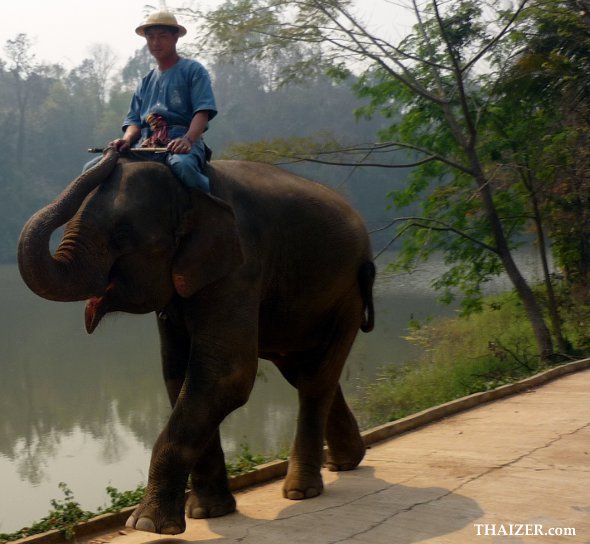
The TECC acts as a centre for research and is at the forefront in treating sick elephants in Thailand. In addition to an on-site hospital, a mobile clinic and rescue unit treats elephants in distress free of charge wherever they may be in the kingdom. There is also a special area (the Pang La sanctuary) dedicated to looking after those elephants that are simply too old or have been badly injured and their former owners can no longer afford to keep them.
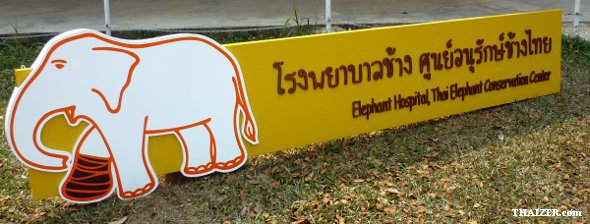
Some of the elephants that are brought to the TECC suffer from preventable injuries and part of the centre’s outreach program is the Elephant Care Manual which is combined with practical tips and advice for mahouts and owners to teach them better ways to look after their elephants.
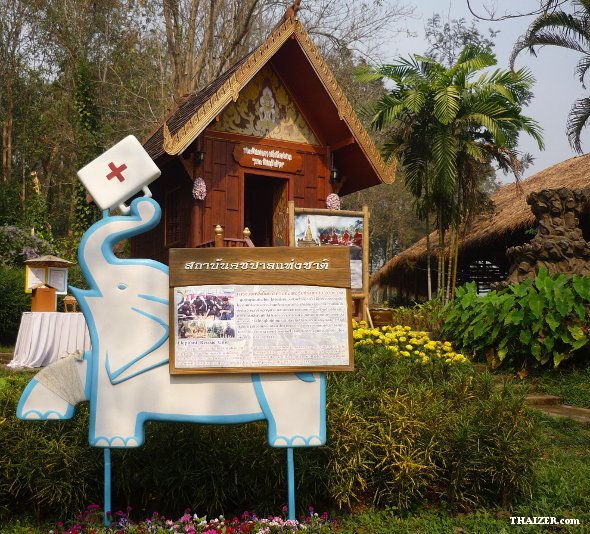
Home to scientists and specialists in their field, the TECC has been at the vanguard of research and scientific developments over the years with the aim of promoting the well-being of the estimated 2,700 elephants in Thailand which are kept in captivity. The experts at the TECC were responsible for the breeding of a calf using artificial insemination and in honour of the technique the baby elephant was called ‘A.I.’ and has grown into a healthy young elephant that now takes part in some of the shows.
The TECC offers elephant rides and also puts on a 40-minute show three times a day which highlights the agility and intelligence of these graceful creatures. The TECC is the first place in Thailand where elephants were taught how to paint and it’s also home of the Thai Elephant Orchestra. As well as producing paintings and music, the elephants demonstrate techniques formerly used in the logging industry.
Show times: 10.00, 11.00 and 13.30
Bathing of elephants: 09.40 and 13.10
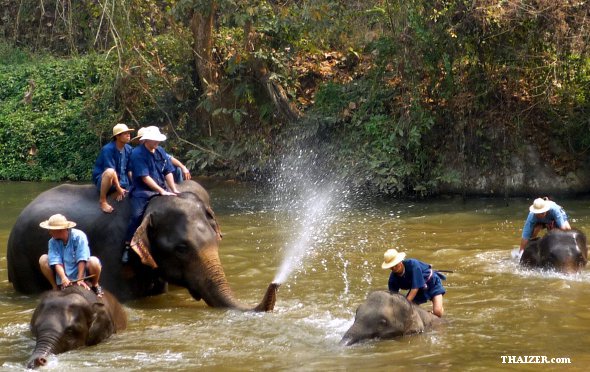
At the shows, some elephants will produce paintings. The TECC makes no secret of the fact that this is a commercial venture with the funds from the sale of these paintings helping to fund the work of the centre. The TECC insist that no elephants are forced into painting and only those that do so willingly are used. This is a harmless process whereby the movements of the elephant are carefully controlled by a mahout with a subtle hand on the ear, tusk or mouth.
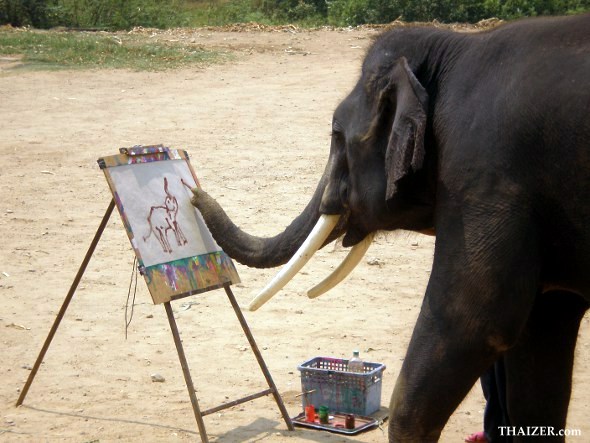
If you want to become an elephant handler (mahout) it’s possible to book a stay at the Thai Elephant Conservation Centre where you can learn the ropes. This is also available as a one-day course if your time is limited. Once you have ‘graduated’ as a mahout you may also be given the opportunity to bathe your adopted elephant and take part in one of the daily shows. Trainee mahouts have the option of staying with the Thai mahouts and their families in basic accommodation or in more comfortable surroundings in a village-style environment with bungalows. There is also the option of trekking trips where you will get to experience life in the forest with the other mahouts and their elephants.
His Majesty the King of Thailand owns ten white elephants with six of them housed at the Royal Elephant Stables within the grounds of the TECC. The Royal Stables aren’t usually open to the public, but some of the white elephants are on show for selected special occasions.
The NEI helps to support private owners of elephants in Thailand and improves public awareness which means that the centre isn’t just aimed at making money from overseas tourists. You will see more Thai families and youngsters here than you will at most of the other elephant camps in Thailand with the NEI promoting the cause of the creatures to local people.
The Thai Elephant Conservation Centre is located in Lampang province, but is easy to reach from the city of Chiang Mai. Buses from Chiang Mai Arcade bus station to Lampang pass the TECC which is in between the 28 and 29 km markers on the main Chiang Mai-Lampang highway. The bus will stop outside the main entrance which will leave you with a short walk into the main area where you can buy your entrance ticket and get on board one of the shuttle buses that go around the park. When buying your bus ticket from Chiang Mai explain where you are going and again when you board the bus. The TECC is approximately 60-70 minutes out of Chiang Mai. Alternatively, you can arrange to hire an air-conditioned taxi or a songthaew for private hire. Either do this directly or via any respectable tour office in Chiang Mai. From Lampang, the journey is around 30-40 minutes and you can follow a similar procedure to either hire a taxi/songthaew or take a Chiang Mai-bound bus. Regular buses ply the route and when returning to Chiang Mai or Lampang just wait on the opposite side to that which you were dropped off and flag down the bus when it approaches.
The TECC is too big to comfortably explore on foot and a shuttle bus service (20 Baht each) is the best way to get around. Private cars and songthaews have to park in the main car park near the main entrance/exit. There are a number of places to buy food and drink with restaurants serving Thai and international food.
Entrance for non-Thai visitors was 150 Baht in 2012, but is now showing as 200 Baht on the TECC’s own website. Entrance fees go towards the upkeep of the elephants and the ongoing welfare and development programs. Accommodation starts from 500 Baht going up to around 1,500 Baht. Elephant rides are charged extra according to the duration of the ride.